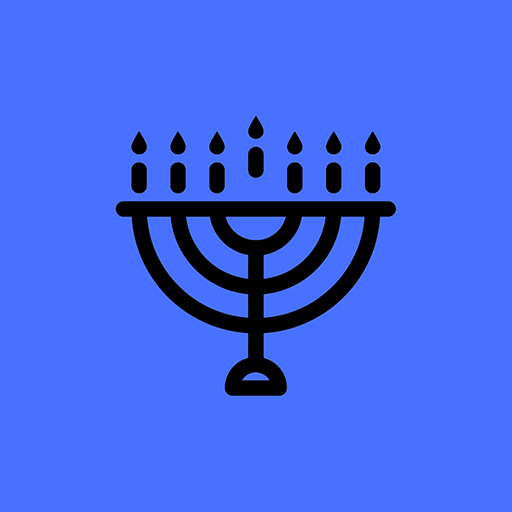 |
Index
|
Index
For the lips of a priest guard knowledge,
And men seek rulings from his mouth;
For he is a messenger of the LORD of Hosts.
Malachi 2:7 (Tanakh)
[The unlisted Levites were set aside by the Lord in order to carry out Levitical-priestly duties.]
To put the Levitical Priesthood into context:
‡ The law as it applies to the resident alien:
8 Say to them further: If anyone of the house of Israel or of the strangers who reside among them offers a burnt offering or a sacrifice, 9 and does not bring it to the entrance of the Tent of Meeting to offer it to the LORD, that person shall be cut off from his people.
10 And if anyone of the house of Israel or of the strangers who reside among them partakes of any blood, I will set My face against the person who partakes of the blood, and I will cut him off from among his kin. 11 For the life of the flesh is in the blood, and I have assigned it to you for making expiation for your lives upon the altar; it is the blood, as life, that effects expiation. 12 Therefore I say to the Israelite people: No person among you shall partake of blood, nor shall the stranger who resides among you partake of blood. (Leviticus 17:8-12 (Tanakh))
18 Speak to Aaron and his sons, and to all the Israelite people, and say to them:
When any man of the house of Israel or of the strangers in Israel presents a burnt offering as his offering for any of the votive or any of the freewill offerings that they offer to the LORD, 19 it must, to be acceptable in your favor, be a male without blemish, from cattle or sheep or goats. 20 You shall not offer any that has a defect, for it will not be accepted in your favor. (Leviticus 22:18-20 (Tanakh))
14 And when, throughout the ages, a stranger who has taken up residence with you, or one who lives among you, would present an offering by fire of pleasing odor to the LORD—as you do, so shall it be done by 15 the rest of the congregation. There shall be one law for you and for the resident stranger; it shall be a law for all time throughout the ages. You and the stranger shall be alike before the LORD; 16 the same ritual and the same rule shall apply to you and to the stranger who resides among you. (Numbers 15:14-16 (Tanakh))
[Dissertation: The Law and the resident/visiting alien, then and now.]
Levi17C was the third son of Jacob and Leah:
31 When the Lord saw that Leah was not loved, he opened her womb, but Rachel was barren. 32 Leah became pregnant and gave birth to a son. She named him Reuben, for she said, "It is because the Lord has seen my misery. Surely my husband will love me now."
33 She conceived again, and when she gave birth to a son she said, "Because the Lord heard that I am not loved, he gave me this one too." So she named him Simeon.
34 Again she conceived, and when she gave birth to a son she said, "Now at last my husband will become attached to me, because I have borne him three sons." So he was named Levi. (Genesis 29:31-34 NIV)
Immediate descendants of Levi:
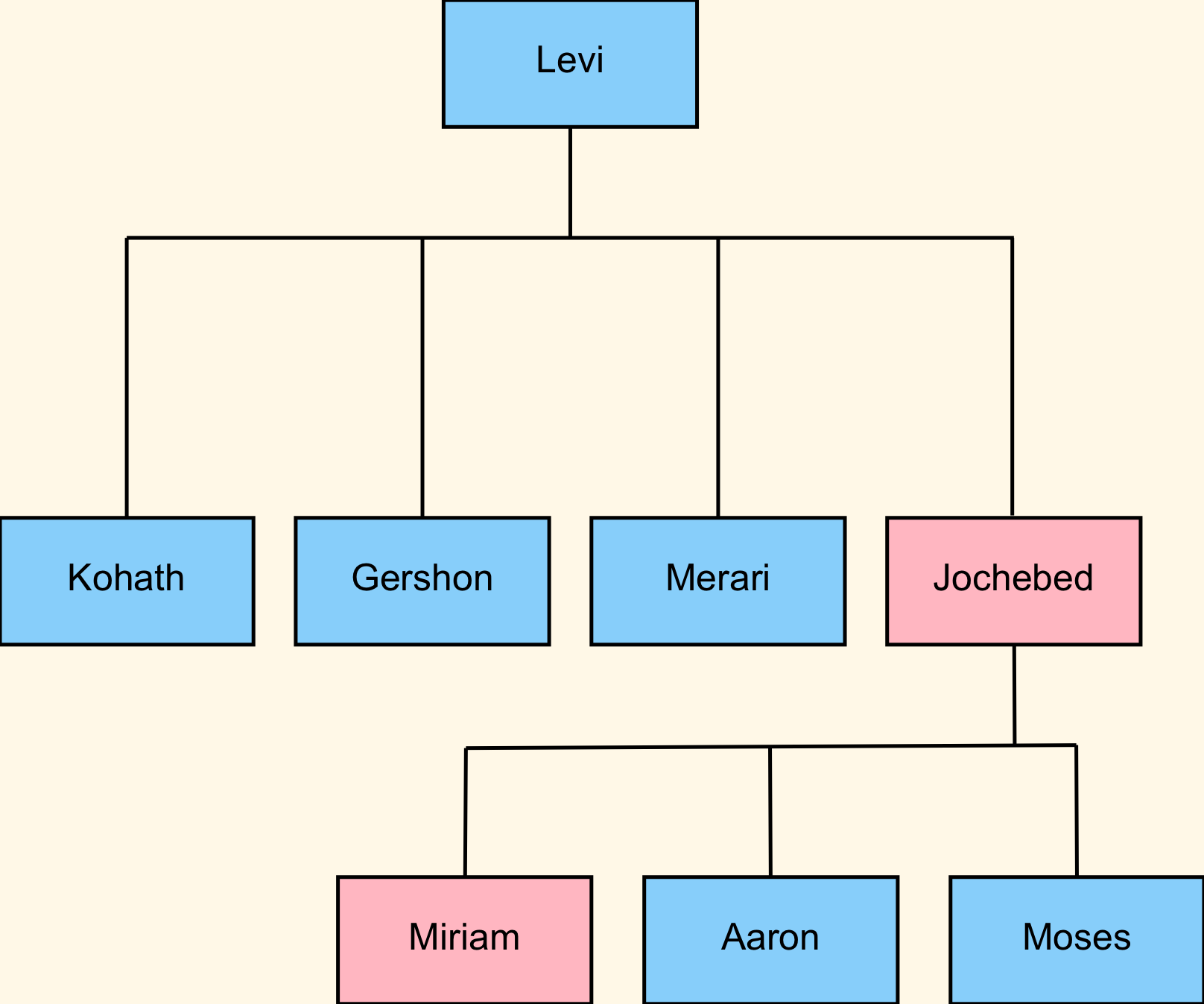
Levi's relationship to Aaron and Moses
NB:
(i) The term 'priest' refers to Aaron and his descendants.
(ii) The term 'Levite' refers to a member of the tribe of Levi who was not a descendant of Aaron. They were appointed to be Levitical servitors. For example:
1 Now Korah, son of Izhar son of Kohath son of Levi,betook himself, along with Dathan and Abiram sons of Eliab,and On son of Peleth—descendants of Reuben—2 to rise up against Moses, together with two hundred and fifty Israelites, chieftains of the community, chosen in the assembly, men of repute. (Numbers 16:1-2 (Tanakh))
...
8 Moses said further to Korah, “Hear me, sons of Levi. 9 Is it not enough for you that the God of Israel has set you apart from the community of Israel and given you access to Him, to perform the duties of the LORD's Tabernacle and to minister to the community and serve them? 10 Now that He has advanced you and all your fellow Levites with you, do you seek the priesthood too? 11 Truly, it is against the LORD that you and all your company have banded together. For who is Aaron that you should rail against him?" (Numbers 16:8-11 (Tanakh))
19 Now this was John's testimony when the Jews of Jerusalem sent priests and Levites to ask him who he was. 20 He did not fail to confess, but confessed freely, "I am not the Christ." (John 1:19-20 NIV)
The Lord speaks thus of Levi:
1 And now, O priests, this charge is for you: 2 Unless you obey and unless you lay it to heart, and do honor to My name—said the LORD of Hosts—I will send a curse and turn your blessings into curses. (Indeed, I have turned them into curses, because you do not lay it to heart.) 3 I will put your seed under a ban, and I will strew dung upon your faces, the dung of your festal sacrifices, and you shall be carried out to its [heap].
4 Know, then, that I have sent this charge to you that My covenant with Levi may endure—said the LORD of Hosts. 5 I had with him a covenant of life and well-being, which I gave to him, and of reverence, which he showed Me. For he stood in awe of My name.
6 Proper rulings were in his mouth,
And nothing perverse was on his lips;
He served Me with complete loyalty
And held the many back from iniquity.
7 For the lips of a priest guard knowledge,
And men seek rulings from his mouth;
For he is a messenger of the LORD of Hosts. (Malachi 2:1-7 (Tanakh))
Slaughter in Egypt:
4 Moses said, “Thus says the LORD: Toward midnight I will go forth among the Egyptians, 5 and every first-born in the land of Egypt shall die, from the first-born of Pharaoh who sits on his throne to the first-born of the slave girl who is behind the millstones; and all the first-born of the cattle. (Exodus 11:4-5 (Tanakh))
The firstborn of Israel belong to the Lord! The Levites - they aren't listed amongst the twelve tribes of Israel - are taken in place of the firstborn of Israel:
11 The LORD spoke to Moses, saying: 12 I hereby take the Levites from among the Israelites in place of all the first-born, the first issue of the womb among the Israelites: the Levites shall be Mine. 13 For every first-born is Mine: at the time that I smote every first-born in the land of Egypt, I consecrated every first-born in Israel, man and beast, to Myself, to be Mine, the LORD's. (Numbers 3:11-13 (Tanakh))
Why a Levitical Contract?
Amongst other things, the Book of Job is an account of God's investigation into the 'universal' church at that time. The book shows us the results of His investigation and His need to correct the decline in the church. However, the timing of any corrective action would have to await more suitable conditions.

So, why a Levitical Contract?
At the time of Job, the growth and distribution of the population was such as to make for increasing difficulty with understanding and consistency in education, worship, and support. The lines of communication - which we take for granted today - were simply not available in those times. Degrees of isolation and a lack of a Book of Teaching resulted in families and groups going off in different directions as each saw fit. The divisions of the global church at that time can also be seen replicated in today's new-covenant universal church, where unity exists merely as a belief in Jesus.
Bildad tells Job to,
8 Ask the generation past,
Study what their fathers have searched out (Job 8:8 (Tanakh))
Eliphaz claims knowledge passed down from the elders:
8 Have you listened in on the council of God?
Have you sole possession of wisdom?
9 What do you know that we do not know,
Or understand that we do not?
10 Among us are gray-haired old men,
Older by far than your father. (Job 15:8-10 (Tanakh))
Job also makes a claim to understanding:
[1] Then Job answered:
[2] "No doubt you are the people, and wisdom will die with you. [3] But I have understanding as well as you; I am not inferior to you. Who does not know such things as these?" (Job 12:1-3 NRSV)
Unlike his friends, Job claims that he speaks to God and He answers him:
[4] I am a laughingstock to my friends; I, who called upon God and he answered me, a just and blameless man, I am a laughingstock. (Job 12:4 NRSV)
Moreover, Job affirms that wisdom and strength come from God:
[13] "With God are wisdom and strength; he has counsel and understanding." (Job 12:13 NRSV)
[16] With him are strength and wisdom; the deceived and the deceiver are his. (Job 12:16 NRSV)
Job's assertion that strength and wisdom come from God, would undoubtedlty have resulted in Job questioning elder-led education:
12 Is wisdom in the aged
And understanding in the long-lived? (Job 12:12 (Tanakh))
Community in those days would have been fairly localised to families and villages; there would not have been the global reach we take for granted today. Different strands of doctrine would have emerged due to isolation and separation. When we look at Job's understanding of God, we find that it is very different to that of the three friends:
7 After the LORD had spoken these words to Job, the LORD said to Eliphaz the Temanite, “I am incensed at you and your two friends, for you have not spoken the truth about Me as did My servant Job.” (Job 42:7 (Tanakh))
It would be easy to launch into a comparison of the church as it was at the time of Job and later at the time of Moses13C.
On the other hand, an approach through 'community' encourages the study of some very important high-level topics, such as unity and potentiation, which have been killed off by the new-covenant church. Such a top-down approach gives perspective to the details of a comparison between the states of church at the time of Job and at the time of Moses13C.

Perhaps, the main difference between the church at the time of Job and the church at the time of the Mosaic Contract, is one of community.
Recall that in the Garden Annex the Lord God had said to Adam and Eve:
28 God blessed them and God said to them, “Be fertile and increase, fill the earth and master it; and rule the fish of the sea, the birds of the sky, and all the living things that creep on earth.” (Genesis 1:28 (Tanakh))
At the time of Job, the expansion and dispeersion of the population would have led to a certain amount of isolation of families and villages. That isolation would have led to a situation in which doctrine was handed down from parent to children, supplemented by knowledge accumulated by the elders in the local community.

The church - at the time of Job - was subject to the Post-Eden Covenant. The Post-Eden Covenant was a contract requiring the signature of every group or individual who chose to dwell with the Lord God throughout Eternity.
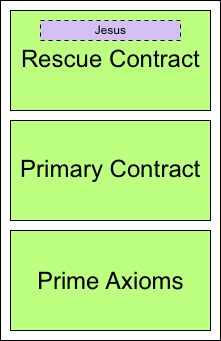
Post-Eden Covenant
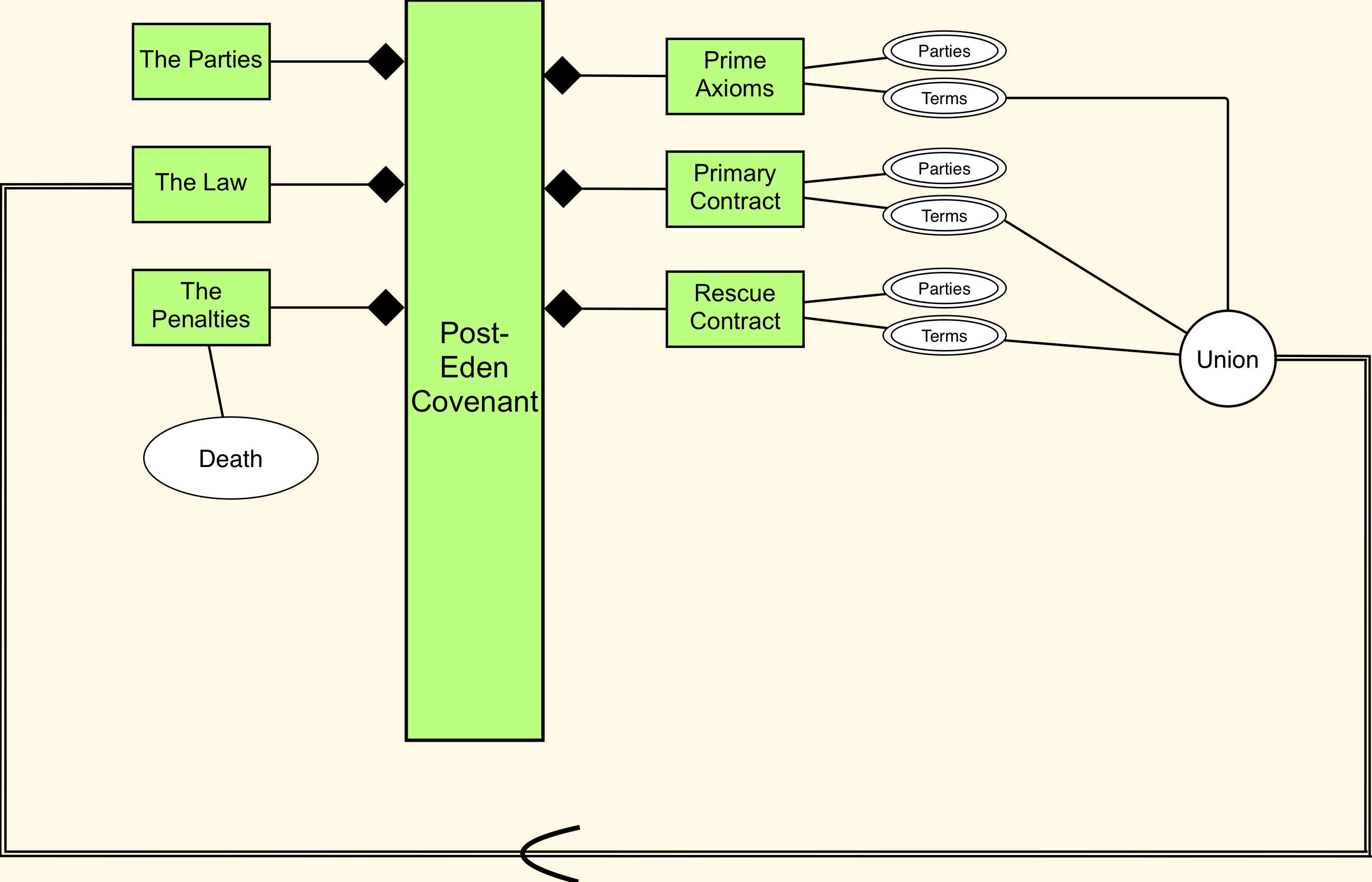
Post-Eden Covenant Law
[At the time of the Post-Eden Covenant, there would have been no knowledge of the Melchizedek Contract. It has therefore been omitted. Nevertheless, the Lord would have informed them about the coming Redeemer.]
But - and this was a very strong 'but' - the Post-Eden Covenant made no allowance for education, training, or supervision, other than these issues being the responsibility of every individual or group. In short, there had been no professional help available to those who were in difficulty: there was no specialisation, since every person was expected to do their job of work, at the same time keeping up to date with the demands of their religion; and there was no Book of Teaching to which reference might be made. The flock were sheep without a shepherd!
The Book of Job had thrown the inadequacies of the then church into stark relief. The time would soon be right to address the growing number of problems arising within the church! The Lord's first task was to set aside a group of experts. They would become responsible for the education and shepherding of the flock. They would also be held accountable for safeguarding the Lord's good name, the Covenant, and the welfare of the community. At that time the Lord fully intended to provide a Book of Teaching which would provide the the reference work which had been sadly lacking.

When the time was right, the Lord instantiated the Israelite Contract:
4 Moses then wrote down all the commands of the LORD.
Early in the morning, he set up an altar at the foot of the mountain, with twelve pillars for the twelve tribes of Israel. 5 He designated some young men among the Israelites, and they offered burnt offerings and sacrificed bulls as offerings of well-being to the LORD. 6 Moses took one part of the blood and put it in basins, and the other part of the blood he dashed against the altar. 7 Then he took the record of the covenant and read it aloud to the people. And they said, “All that the LORD has spoken we will faithfully do!" 8 Moses took the blood and dashed it on the people and said, “This is the blood of the covenant that the LORD now makes with you concerning all these commands.” (Exodus 24:4-8 (Tanakh))
Following the instantiation of the Israelite Contract - a component of the Mosaic Contract - there were still needs which had to be addressed:
The Lord:
The Israelites:
And so the Lord God set up the Levitical Priesthood, comprising experts (the priests) and their helpers (the servitors).
The Levites would become a group of experts who were in touch with the Lord:
7 For the lips of a priest guard knowledge,
And men seek rulings from his mouth;
For he is a messenger of the LORD of Hosts. (Malachi 2:7 (Tanakh))
To this end, the Lord God appointed Aaron and his descendants to the office of Levitical priest:
1 This is the line of Aaron and Moses at the time that the LORD spoke with Moses on Mount Sinai. 2 These were the names of Aaron's sons: Nadab, the first-born, and Abihu, Eleazar and Ithamar; 3 those were the names of Aaron's sons, the anointed priests who were ordained for priesthood. (Numbers 3:1-3 (Tanakh))
The Lord God then advanced the remainder of the tribe of Levi17C - those not descended from Aaron - and placed them in attendance upon Aaron:
5 The LORD spoke to Moses, saying: 6 Advance the tribe of Levi and place them in attendance upon Aaron the priest to serve him. 7 They shall perform duties for him and for the whole community before the Tent of Meeting, doing the work of the Tabernacle. (Numbers 3:5-7 (Tanakh))
Thus the whole tribe of Levi were set aside for service to the Lord: Aaron and his descendants were appointed to the priesthood; the remainder of the tribe, those not descended from Aaron, became support workers, servitors placed in attendance upon the priesthood.
The Lord explained His reasons for setting aside the Levites:
11 The LORD spoke to Moses, saying: 12 I hereby take the Levites from among the Israelites in place of all the first-born, the first issue of the womb among the Israelites: the Levites shall be Mine. 13 For every first-born is Mine: at the time that I smote every first-born in the land of Egypt, I consecrated every first-born in Israel, man and beast, to Myself, to be Mine, the LORD's. (Numbers 3:11-13 (Tanakh))
[Assignment: Those of the priesthood could be demoted to the level of 'Levite'; whereas Levites could not be promoted to the priesthood. Discuss.]

First and foremost, the whole of Israel committed to the Mosaic Covenant which included the Israelite Contract. The Levitical Contract was yet to be instantiated.
The Levitical Priesthood did not exist when the Mosaic Contract was signed (Ex. 24:1-8 T). However, Jesus was represented in the Covenant; and we know that. Even before creation, Jesus had been appointed Redeemer and High Priest Designate in a contract (1 Peter 1:18-20 NIV) which would become known as the Order of Melchizedek. Since the Levitical Priesthood did not as yet exist, they did not, nor could they ever, make expiation for sin through animal sacrifice. Hence the role of the Levitical Priesthood, which included the high priest, was not one of making expiation but necessarily that of shepherding the Flock. Furthermore, they would be symbols of what the Lord intended to do:
8 Hearken well, O High Priest Joshua, you and your fellow priests sitting before you! For those men are a sign that I am going to bring My servant the Branch. 9 For mark well this stone which I place before Joshua, a single stone with seven eyes. I will execute its engraving—declares the LORD of Hosts—and I will remove that country's guilt in a single day. 10 In that day—declares the LORD of Hosts—you will be inviting each other to the shade of vines and fig trees.” (Zechariah 3:8-10 (Tanakh))
When the Mosaic Covenant was signed (Ex. 24:1-8 T) the contract included the Prime Axioms, the Primary Contract, the Rescue Contract, and the Israelite Contract. The Levitical Contract did not, as yet, exist. The Mosaic Covenant, at that point on the timeline, explains how Jesus was represented in the Rescue Contract as the Redeemer of Israel; Jesus, of course, was already Great High Priest Designate in the Order of Melchizedek. Jesus' representation is fully explained:
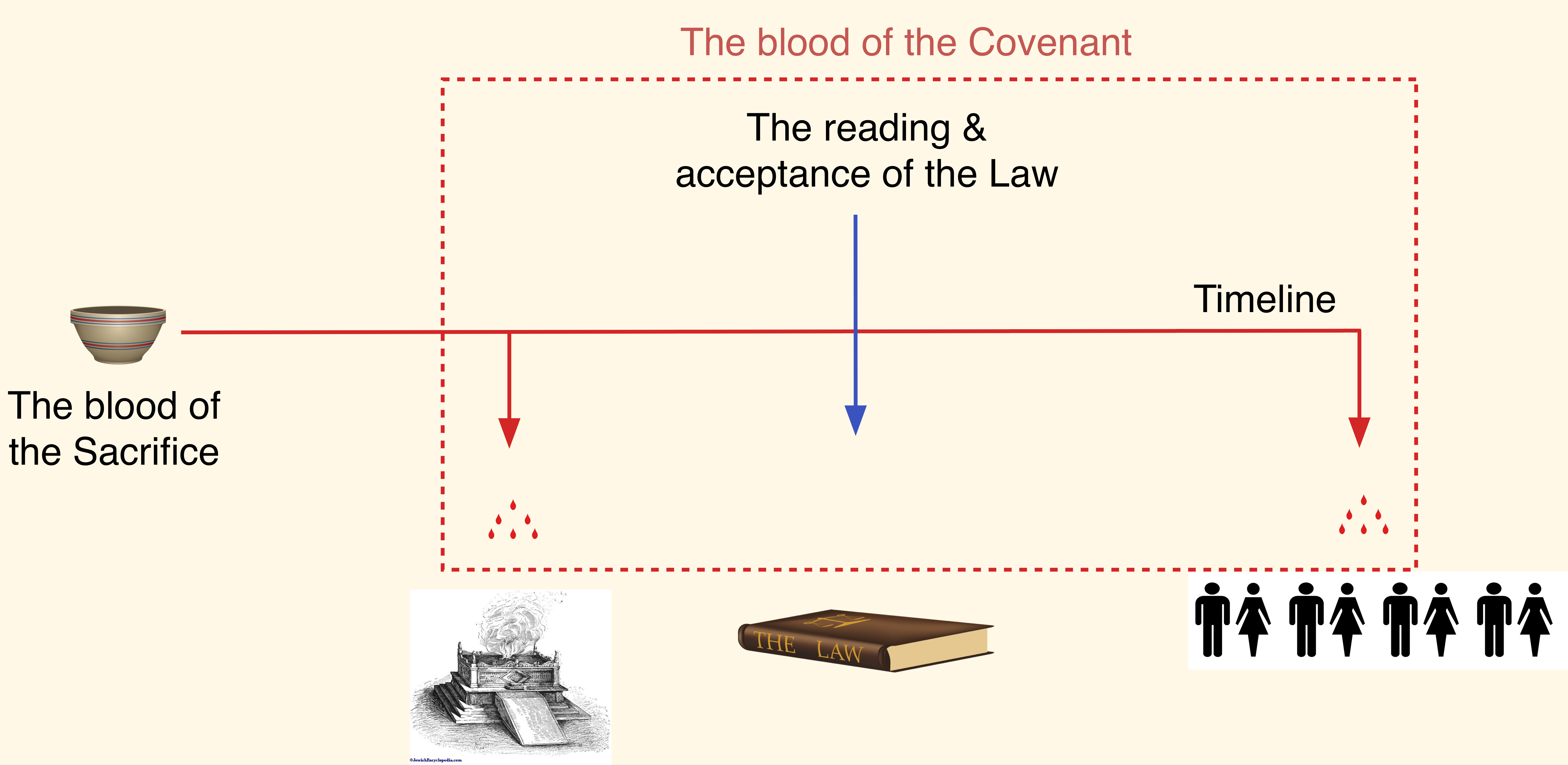
The representation of Jesus
1 Then He said to Moses, “Come up to the LORD, with Aaron, Nadab and Abihu, and seventy elders of Israel, and bow low from afar. 2 Moses alone shall come near the LORD; but the others shall not come near, nor shall the people come up with him.”
3 Moses went and repeated to the people all the commands of the LORD and all the rules; and all the people answered with one voice, saying, “All the things that the LORD has commanded we will do!" 4 Moses then wrote down all the commands of the LORD.
Early in the morning, he set up an altar at the foot of the mountain, with twelve pillars for the twelve tribes of Israel. 5 He designated some young men among the Israelites, and they offered burnt offerings and sacrificed bulls as offerings of well-being to the LORD. 6 Moses took one part of the blood and put it in basins, and the other part of the blood he dashed against the altar. 7 Then he took the record of the covenant and read it aloud to the people. And they said, “All that the LORD has spoken we will faithfully do!" 8 Moses took the blood and dashed it on the people and said, “This is the blood of the covenant that the LORD now makes with you concerning all these commands.” (Exodus 24:1-8 (Tanakh))
In order to understand the Levitical Contract more fully, it is necessary to understand its relationship to the Melchizedek Contract. To this end, a simple timeline perspective will provide clarity as to what the Levitical Contract is and what it is not.
Sequence of events which took place in the Heavenly Realm:
[† 18 For you know that it was not with perishable things such as silver or gold that you were redeemed from the empty way of life handed down to you from your forefathers, 19 but with the precious blood of Christ, a lamb without blemish or defect. 20 He was chosen before the creation of the world, but was revealed in these last times for your sake. (1 Peter 1:18-20 NIV)]
[Dissertation:
(i)The legal constraints imposed on the Court of No Appeal on the Day of Judgement,
(ii) compliance.]

The Melchizedek Contract necessarily requires a detailed understanding - at both the Physical and Spiritual Levels - of the operation of God's plans:
The Priests in the Order of Melchizedek are assigned by the Father to Jesus, and are placed in attendance upon Him. The operation of the Priesthood in the Order of Melchizedek takes place entirely at the Spiritual Level.
The relationship between the Melchizedek Contract and the Levitical Contract is clear-cut. There is neither ambiguity nor confusion as to their very different roles!
The operation of the Melchizedek Contract at the Spiritual Level can be seen in Melchizedek19C's encounter with Abram:
18 And King Melchizedek of Salem brought out bread and wine; he was a priest of God Most High. 19 He blessed him, saying,
“Blessed be Abram of God Most High,
Creator of heaven and earth.
20 And blessed be God Most High,
Who has delivered your foes into your hand.”
And Abram gave him a tenth of everything. (Genesis 14:18-20 (Tanakh))
Melchizedek19C brought out bread and wine, symbols in the Eucharist of the risen Messiah. For Melchizedek19C, Jesus - his Boss - was very much alive and in charge of the Order [of Melchizedek]! Melchizedek19C, delegated by the Lord, was thus in a position to pass the Lord's blessing on to Abram; and Melchizedek19C was in a position to receive the tithe from Abram on the Lord's behalf.

The Melchizedek Contract existed long before the Levitical Contract. Although the Mosaic Contract showed the representation of Jesus in the Covenant, Jesus had always been the Redeemer of lost souls. Before the creation of the known world, the Lord God had allowed for the possibility of mankind falling into sin and error; and so He had appointed Jesus as Redeemer in the Priesthood later to be called the Order of Melchizedek:
18 For you know that it was not with perishable things such as silver or gold that you were redeemed from the empty way of life handed down to you from your forefathers, 19 but with the precious blood of Christ, a lamb without blemish or defect. 20 He was chosen before the creation of the world, but was revealed in these last times for your sake. (1 Peter 1:18-20 NIV)
When mankind were expelled from the Garden Annex, Jesus became de facto 'High Priest Designate' in the Priesthood in the Order of Melchizedek. Jesus' shed blood would make expiation for those who fell into sin and error‡. The reality of the Priesthood in the Order of Melchizedek is shown by the existence of Melchizedek, who was a priest in the order which takes his name, and who served under the Lord Jesus who was the order's High Priest. The Priesthood in the Order of Melchizedek predated the appointment of the Levitical Priesthood.
[‡ Assignment: Expiation will not be applied until the Day of Judgement. Discuss, and explain the significance.]

Precedence in the Covenant Priesthood:
[Assignment: Write short notes on the Covenant Priesthood and their roles and relationships.]

Where did King Melchizedek19C live? His meeting with Abram provides a clue:
18 And King Melchizedek of Salem brought out bread and wine; he was a priest of God Most High. 19 He blessed him, saying,
“Blessed be Abram of God Most High,
Creator of heaven and earth.
20 And blessed be God Most High,
Who has delivered your foes into your hand.”
And Abram gave him a tenth of everything. (Genesis 14:18-20 (Tanakh))
However, next to nothing is known about Salem. Consequently, King Melchizedek's abode has been the object of much conjecture!
But perhaps the Psalmist Asaph, speaking by the Spirit, helps us understand when he declares:
1 In Judah God is known;
his name is great in Israel.
2 His tent is in Salem,
his dwelling place in Zion. (Psalm 76:1-2 NIV)
This accords well with what the Lord has said about Zion.
Here, too, the timeline provides as measure of clarity.
Sequence of events:
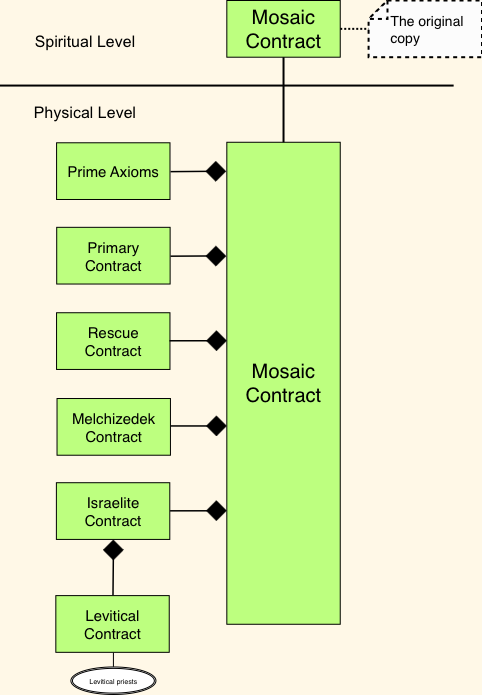
Structure of the Mosaic Covenant
Those who obeyed the Prime Axioms and the Primary Contract would have no need of the Rescue Contract (recommended). Those children too young to enter into a contract would not be guilty of sin, and would not be subject to the penalty clause of the Covenant (NB: accountability commences on reaching the Age of Discretion).
However, for those who fell into sin and error, the Rescue Contract would provide the means by which forgiveness might be found. Note the differences between unintentional sin and defiant sin.
Although the priest could 'pronounce' forgiveness following the ritual, there was no guarantee that that forgiveness would be applied at the Spiritual Level. The priestly pronouncement of forgiveness (eg, Leviticus 4:27-31 (Tanakh)) guaranteed neither the insertion of one's name in the Book of Life, nor the declaration of forgiveness on the Day of Judgement. The priestly pronouncement of forgiveness could always be overridden by the Lord Jesus if it was necessary.
The twelve tribes are as follows: Reuben, Simeon, Judah, Issachar, Zebulun, Benjamin, Dan, Naphtali, Gad, Asher, Ephraim and Manasseh. Notice the absence, from the census, of the tribe of Levi, as well as their function on setting up camp:
47 The Levites, however, were not recorded among them by their ancestral tribe. 48 For the LORD had spoken to Moses, saying: 49 Do not on any account enroll the tribe of Levi or take a census of them with the Israelites. 50 You shall put the Levites in charge of the Tabernacle of the Pact, all its furnishings, and everything that pertains to it: they shall carry the Tabernacle and all its furnishings, and they shall tend it; and they shall camp around the Tabernacle. 51 When the Tabernacle is to set out, the Levites shall take it down, and when the Tabernacle is to be pitched, the Levites shall set it up; any outsider who encroaches shall be put to death. 52 The Israelites shall encamp troop by troop, each man with his division and each under his standard. 53 The Levites, however, shall camp around the Tabernacle of the Pact, that wrath may not strike the Israelite community; the Levites shall stand guard around the Tabernacle of the Pact. (Numbers 1:47-53 (Tanakh))
[Essay: The omission of the Levites from the census signified differences in contract and accountability.]
[Essay: Protecting the Tabernacle, Covenant, and the Lord's Name and Reputation.]
On arrival, the Tabernacle of the Pact is set up in the central location, for this will be the dwelling place of the Lord God:
8 And let them make Me a sanctuary that I may dwell among them. 9 Exactly as I show you—the pattern of the Tabernacle and the pattern of all its furnishings—so shall you make it. (Exodus 25:8-9 (Tanakh))
[Essay: A nation centred on God.]
The Tabernacle is God’s existential dwelling place amongst His people. It is a _real_ place, not some abstract concept or future reality - though it does contain the promise of a permanent future reality in the Promised Land.
Having said that, at the psychological level God's mobile home addresses the people's need for God's presence wherever they may travel. That need is for a God who is with them and close at hand, always. Later, God's mobile home here on Earth will give way to a fixed abode in Zion. The problem then becomes the loss of God's presence when they go out into the world on His behalf. Likewise, those not living in Zion will be deprived of the benefit of God's close presence - a psychological and practical disadvantage. For lots of reasons, it isn't possible for everyone to go and live in Jerusalem! But look at what happens to Jerusalem with the shift of worship to the Spiritual Level!
Psychologically, the physical sequence of events provides a sequential overview which is one of mobile accompaniment which will then give way to a permanent fixed location. That later permanence is to be found in God's dwelling place in Zion.
Viewed at the Physical Level, this sequence of events speaks of God's various intentions at the Spiritual Level. But what it fails to do is to apply all those intentions simultaneously. Even God's mobile home has severe limitations at the Physical Level, since it fails to address the needs of those living far away from the Tabernacle's current location.
Those living at the time of Moses13C will see God's home accompanying them wherever they may go; as for a permanent address, that remains but a hope for a future in the Promised Land. Whereas those later dwelling in Zion will see the permanence of God's address in Zion (namely the Temple in Jerusalem), but they may very well lose sight of the accompanying reality of God's physical presence when they are travelling on the road. Two different views! But can those different views be combined into a single composite view, where each person, wherever they may be dwelling, experiences both God's accompanying existential presence as well as an existential, permanent base of operations?
Look no further, for David's Tent conceptually captures both views simultaneously, that of mobile accompaniment as well as a fixed base of operations! But in order to see that, it is necessary to understand what is taking place at the Spiritual Level, for the Spiritual Level and the Physical Level are one.
The book of Zechariah6C provides an insight into Jerusalem at the Spiritual Level:
5 I looked up, and I saw a man holding a measuring line. 6 “Where are you going?" I asked. “To measure Jerusalem," he replied, “to see how long and wide it is to be.” 7 But the angel who talked with me came forward, and another angel came forward to meet him. 8 The former said to him, “Run to that young man and tell him:
“Jerusalem shall be peopled as a city without walls, so many shall be the men and cattle it contains. 9 And I Myself—declares the LORD—will be a wall of fire all around it, and I will be a glory inside it.” (Zechariah 2:5-9 (Tanakh))
At the Spiritual Level, there is room for everyone and their cattle! And it doesn't come at the expense of the Physical Domain, since the Spiritual Dimension and the Physical Dimension are inseparable. Necessarily, therefore, to dwell in a place at the Spiritual Level is to dwell in that place at the Physical Level.
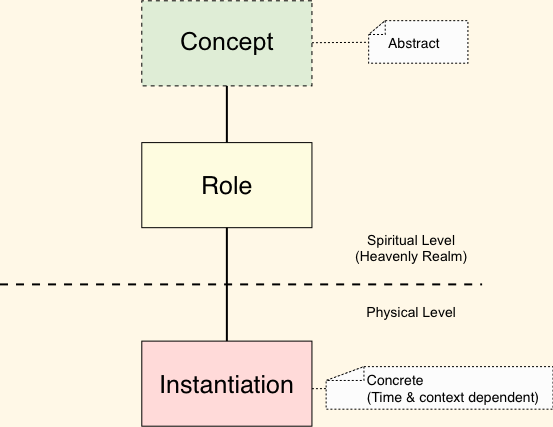
The unity of the Spiritual and Physical Levels
Enter the concept of David's Tent! At the Spiritual Level, David's Tent explains:
The unity of the separate individuals of the Trinity makes this possible:
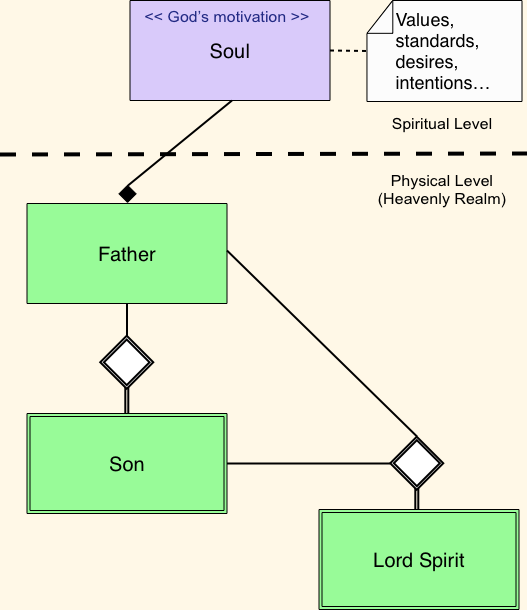
The Trinity - dependencies
As can be seen from the illustration, Jesus and the Lord Spirit have handed the direction of their own lives over to the Lord God. Because Jesus and the Lord Spirit are completely dependent on God's soul, wherever they go they take the Lord God with them. Ultimately, the words, desires, and actions of Jesus and the Lord Spirit are those of the Lord God Almighty lurking in the background. Necessarily, therefore, if either Jesus or the Lord Spirit are present, then the Lord God Himself is also present.
Does Scripture provide an insight? It might be a bit of a stretch, but perhaps 2 Samuel, chapter 6, provides an insight. For example,
16 As the Ark of the LORD entered the City of David, Michal daughter of Saul looked out of the window and saw King David leaping and whirling before the LORD; and she despised him for it.
17 They brought in the Ark of the LORD and set it up in its place inside the tent which David had pitched for it, and David sacrificed burnt offerings and offerings of well-being before the LORD. 18 When David finished sacrificing the burnt offerings and the offerings of well-being, he blessed the people in the name of the LORD of Hosts. 19 And he distributed among all the people—the entire multitude of Israel, man and woman alike—to each a loaf of bread, a cake made in a pan, and a raisin cake. Then all the people left for their homes. (2 Samuel 6:16-19 (Tanakh))
The Tabernacle is located in the City of David10C. It remains mobile: so, were God to send the people out, the Tabernacle could accompany them - though it would leave the City bereft! Later on, Solomon10C would replace David's Tent with a permanent residence, the Temple. However, this permanence eclipsed the mobility of His Tabernacle.
The Lord God had refused David10C permission to build a House for His Name(fn). The Lord God had His reasons for refusing permission; but was one of those reasons a desire - indeed, a need - to maintain the Spiritual Dimension of what He was doing? And in David's Tent, we find that embodiment of that Spiritual Dimension, even today.
Could the Lord map His desires at the Conceptual Level to an instantiation which would ensure that people knew:
If so, how does the Lord God map concept to instantiation in the world?
Prior to Jesus, it is possible to sum the sequential meanings of God's dwelling place on Earth:
Jesus, however, changed everything when He shifted worship to the Spiritual Level, sending the Lord Spirit to make good the loss of His own presence (John 15:26). The destruction of the Temple in 70 CE confirmed the shift of worship to the Spiritual Level, since henceforth the Covenant was unenforceable at the Physical Level; nevertheless, the Covenant remained enforceable at the Spiritual Level.
The Lord God dwells in Zion. The Lord God chose Zion for His dwelling:
For the Lord has chosen Zion, he has desired it for his dwelling:
14 "This is my resting place for ever and ever; here I will sit enthroned, for I have desired it---“ (Psalm 132:13-14 NIV)
In Judah God is known; his name is great in Israel. 2 His tent is in Salem, his dwelling place in Zion. (Psalm 76:1-2 NIV)
The Lord God has put His Name, heart, and eyes in Jerusalem: they are there now, and will remain there forever:
3 The Lord said to him \[Solomon] :
"I have heard the prayer and plea you have made before me; I have consecrated this temple, which you have built, by putting my Name there forever. My eyes and my heart will always be there.” (1 Kings 9:3 NIV)
And so,
This works because the Son and the Lord Spirit have both given up the direction of their own lives, and handed that direction over to the Lord God Almighty. Thus, whoever is present - whether Jesus or the Lord Spirit - God is also present:

The Lord God is no absent landlord dwelling in His home in Heaven. He is near at hand, at both the Physical Level and the Spiritual Level:
7 What other nation is so great as to have their gods near them the way the Lord our God is near us whenever we pray to him? 8 And what other nation is so great as to have such righteous decrees and laws as this body of laws I am setting before you today? (Deuteronomy 4:7-8 NIV)
There is:
The Lord covers _all_ bases at the Spiritual Level!
The corollary to God's dwelling place on Earth is to be found here, with the Psalmist's words:
5 Indeed, of Zion it will be said,
"This one and that one were born in her,
and the Most High himself will establish her."
6 The Lord will write in the register of the peoples:
"This one was born in Zion." (Psalm 87:5-6 NIV)
Those who choose to dwell with the Lord in Zion, here on Earth, will have their names written in the Register of Zion!
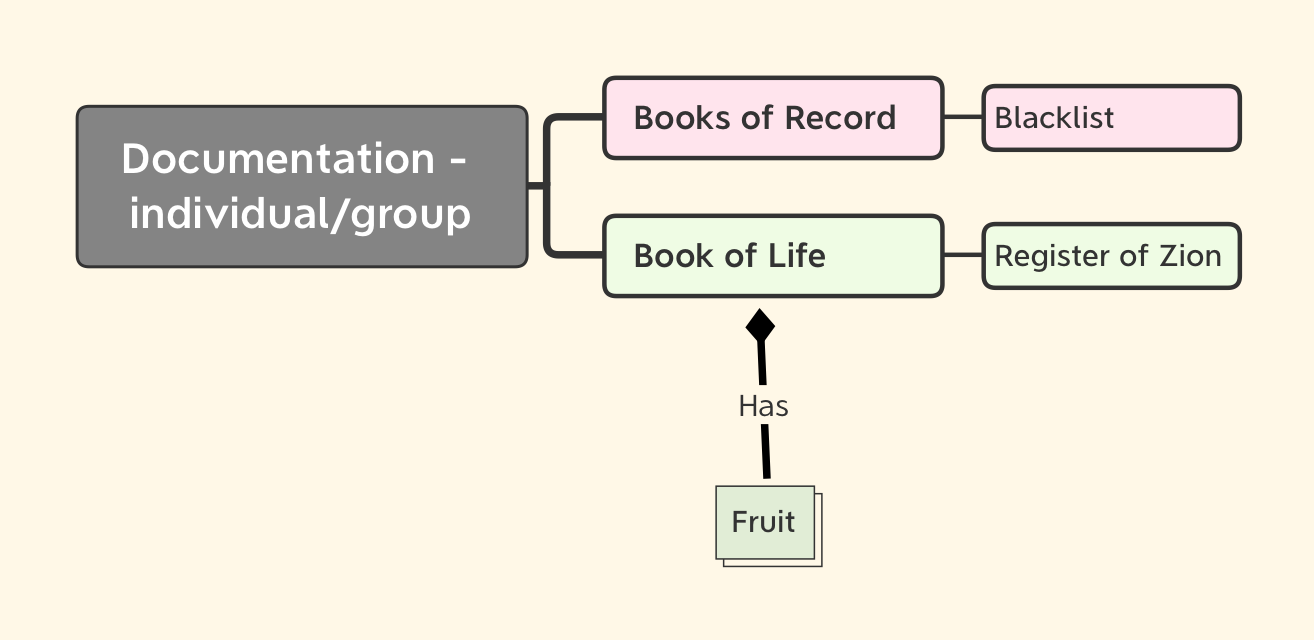
The Documentation
[Essay: The support - past, present, and future - offered by God's dwelling place.]

On arrival, the first thing to be done is to set up the Tabernacle [in what will become the 'central position']:
47 The Levites, however, were not recorded among them by their ancestral tribe. 48 For the LORD had spoken to Moses, saying: 49 Do not on any account enroll the tribe of Levi or take a census of them with the Israelites. 50 You shall put the Levites in charge of the Tabernacle of the Pact, all its furnishings, and everything that pertains to it: they shall carry the Tabernacle and all its furnishings, and they shall tend it; and they shall camp around the Tabernacle. 51 When the Tabernacle is to set out, the Levites shall take it down, and when the Tabernacle is to be pitched, the Levites shall set it up; any outsider who encroaches shall be put to death. 52 The Israelites shall encamp troop by troop, each man with his division and each under his standard. 53 The Levites, however, shall camp around the Tabernacle of the Pact, that wrath may not strike the Israelite community; the Levites shall stand guard around the Tabernacle of the Pact. (Numbers 1:47-53 (Tanakh))
[Essay: The Tabernacle no longer occupies the 'central position'.]
The Levites are to camp around the Tabernacle and guard it:
53 The Levites, however, shall camp around the Tabernacle of the Pact, that wrath may not strike the Israelite community; the Levites shall stand guard around the Tabernacle of the Pact. (Numbers 1:53 (Tanakh))
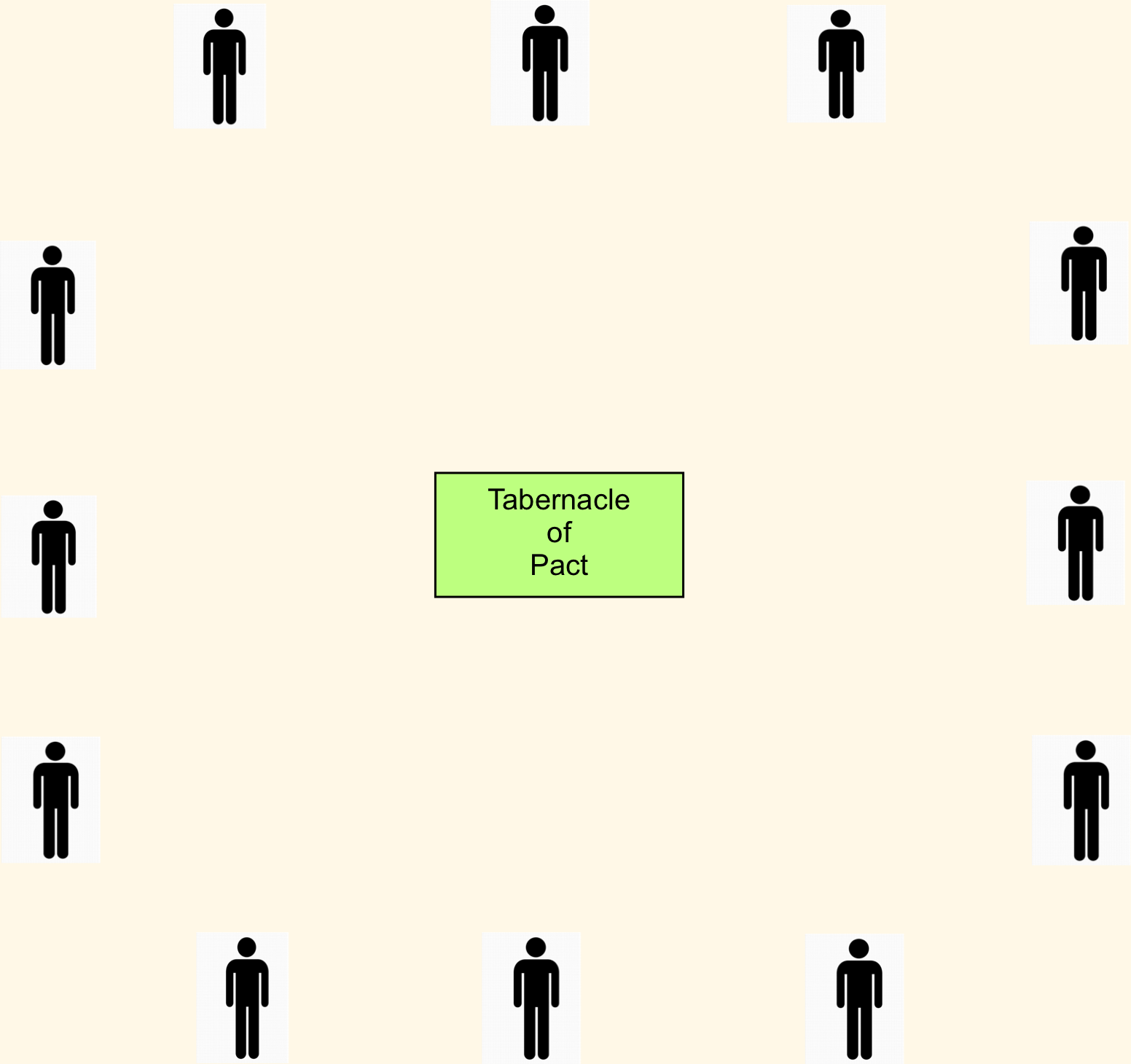
The Levites guard the Tabernacle
The Levites are to camp around the Tabernacle and guard it!
[Essay: The failure of the priests and Levites to guard the truth of the Covenant and the Holy Things.]
[Essay: The failure of Paul, the unknown writer to the Hebrews, and the new-covenant church since, to guard the truth of the Covenant and the Holy Things; and going so far as to defile and annul it.]
As for the twelve tribes, they are to set up their camp around the camp of the Levites (Numbers, chapter 2):
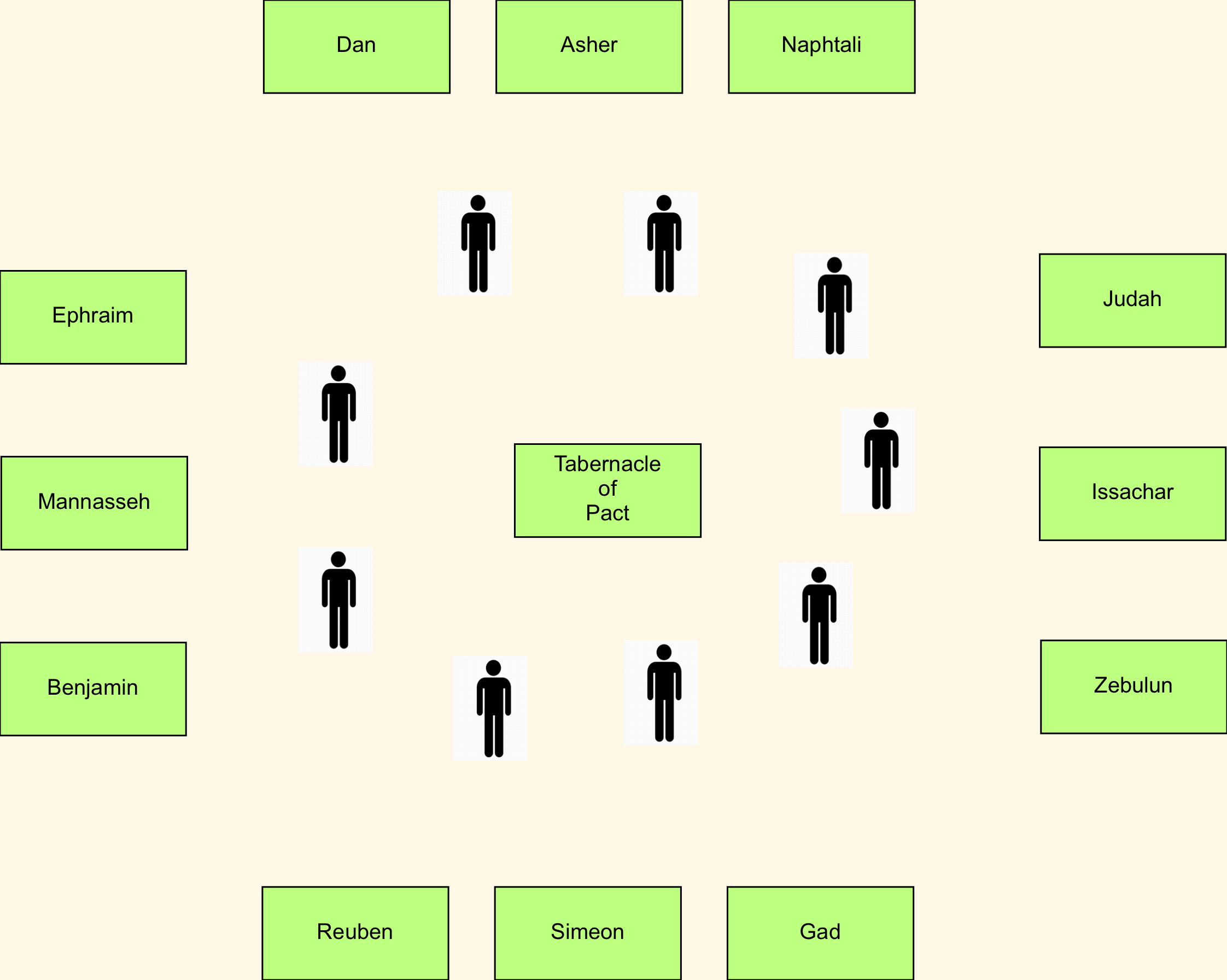
Disposition - Israelites
The Lord's instructions concerning the Israelite camp are specific. non-negotiable, and carry a penalty of Death. So, is there any correlation with the layout of the New Jerusalem?
Is it possible to map the Israelite camp to the New Jerusalem? Here is a description of the New Jerusalem:
9 Then one of the seven angels who had the seven bowls full of the seven last plagues came and said to me, "Come, I will show you the bride, the wife of the Lamb." 10 And in the spirit he carried me away to a great, high mountain and showed me the holy city Jerusalem coming down out of heaven from God. 11 It has the glory of God and a radiance like a very rare jewel, like jasper, clear as crystal. 12 It has a great, high wall with twelve gates, and at the gates twelve angels, and on the gates are inscribed the names of the twelve tribes of the Israelites; 13 on the east three gates, on the north three gates, on the south three gates, and on the west three gates. 14 And the wall of the city has twelve foundations, and on them are the twelve names of the twelve apostles of the Lamb.
15 The angel who talked to me had a measuring rod of gold to measure the city and its gates and walls. 16 The city lies foursquare, its length the same as its width; and he measured the city with his rod, fifteen hundred miles; its length and width and height are equal. 17 He also measured its wall, one hundred forty-four cubits by human measurement, which the angel was using. 18 The wall is built of jasper, while the city is pure gold, clear as glass. 19 The foundations of the wall of the city are adorned with every jewel; the first was jasper, the second sapphire, the third agate, the fourth emerald, 20 the fifth onyx, the sixth carnelian, the seventh chrysolite, the eighth beryl, the ninth topaz, the tenth chrysoprase, the eleventh jacinth, the twelfth amethyst. 21 And the twelve gates are twelve pearls, each of the gates is a single pearl, and the street of the city is pure gold, transparent as glass.
22 I saw no temple in the city, for its temple is the Lord God the Almighty and the Lamb. 23 And the city has no need of sun or moon to shine on it, for the glory of God is its light, and its lamp is the Lamb. 24 The nations will walk by its light, and the kings of the earth will bring their glory into it. 25 Its gates will never be shut by day-and there will be no night there. 26 People will bring into it the glory and the honor of the nations. 27 But nothing unclean will enter it, nor anyone who practices abomination or falsehood, but only those who are written in the Lamb's book of life. (Revelation 21:9-27 NRSV)
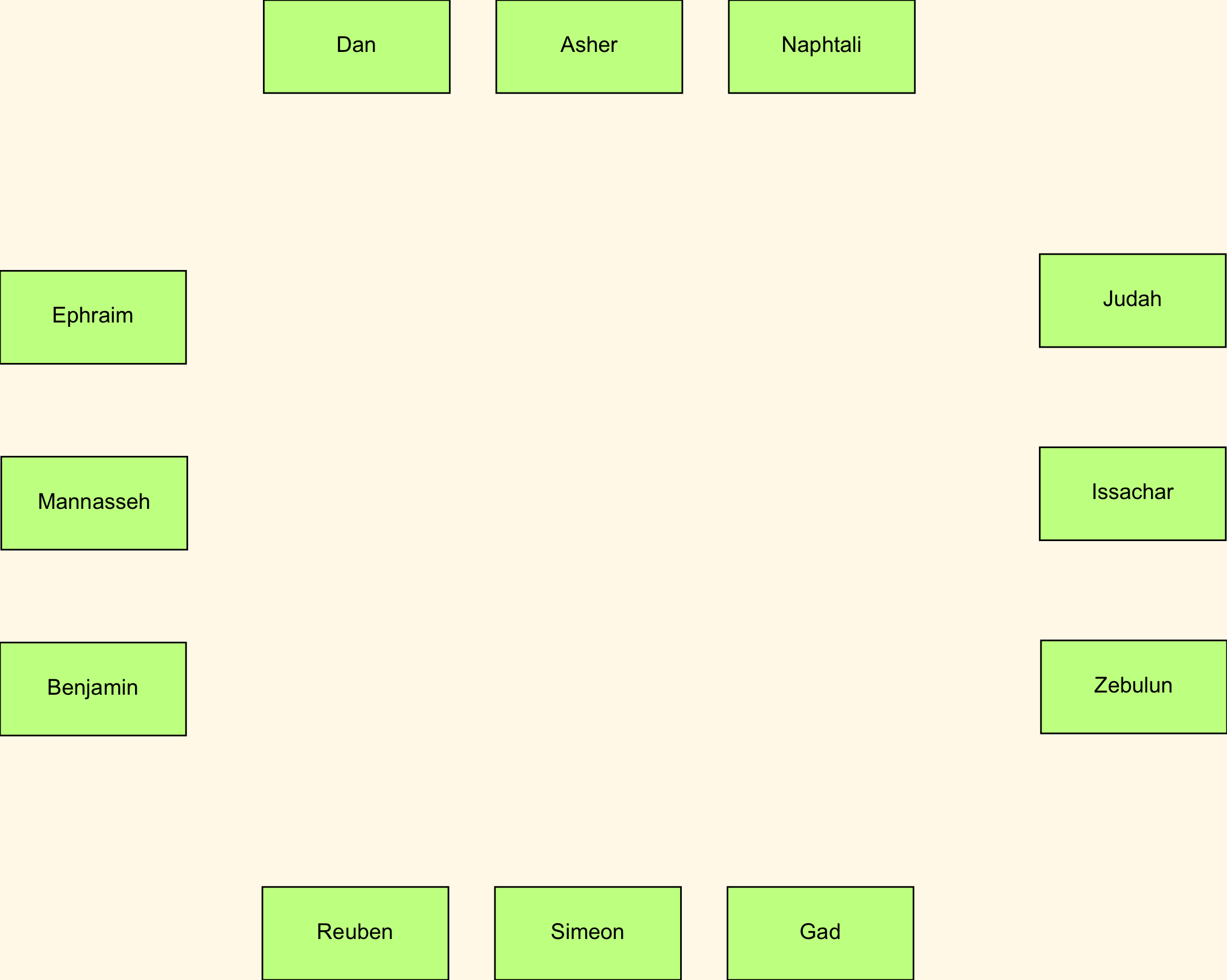
Layout of the twelve tribes
Does the layout of the twelve tribes of the Israelite encampment have any significance? Is there, for instance, any commonality with the New Jerusalem?
10 And in the spirit he carried me away to a great, high mountain and showed me the holy city Jerusalem coming down out of heaven from God. 11 It has the glory of God and a radiance like a very rare jewel, like jasper, clear as crystal. 12 It has a great, high wall with twelve gates, and at the gates twelve angels, and on the gates are inscribed the names of the twelve tribes of the Israelites; 13 on the east three gates, on the north three gates, on the south three gates, and on the west three gates. (Revelation 21:10-13 NRSV)

Schematic of the New-Jerusalem walls
It is possible to overlay the schematic of the Israelite camp with a schematic of the walls of the New Jerusalem. The encampment of the twelve tribes appear to map to the gates in the walls of the New Jerusalem [with the inner circle of Levites protecting entry to the Tabernacle, the Sanctuary wherein God dwells]. The overlay and mapping are sound:
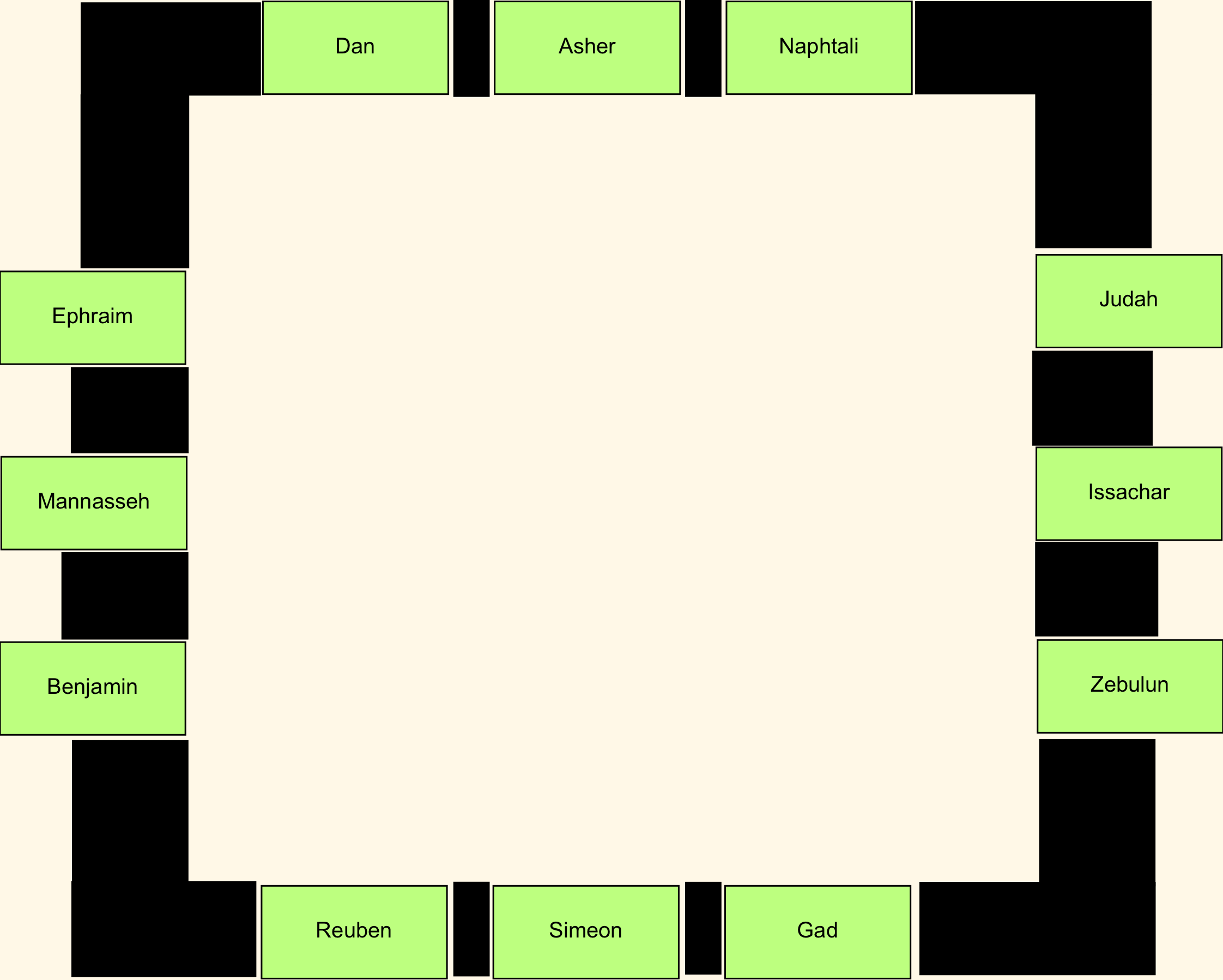
Israelite tribes overlaid with New-Jerusalem walls
The unity of the twelve tribes is shown by their collective inscription on each of the gates:
12 It had a great, high wall with twelve gates, and with twelve angels at the gates. On the gates were written the names of the twelve tribes of Israel. 13 There were three gates on the east, three on the north, three on the south and three on the west. (Revelation 21:12-13 NIV)
The Levitical Priesthood - priest and servitor - were to stand within the encampment of the twelve tribes, protecting the Tabernacle wherein dwells the Lord God:
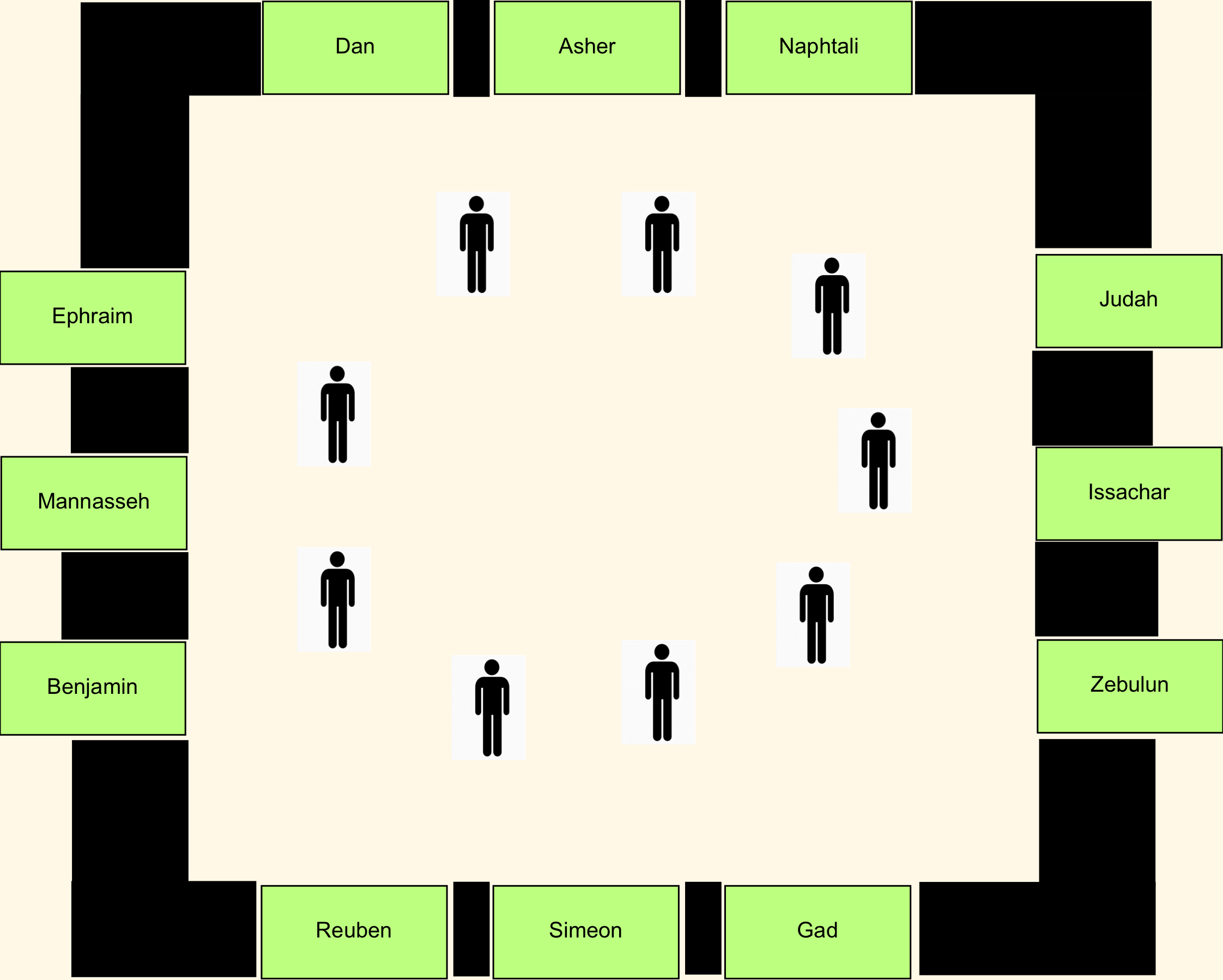
Intended mapping of the Levites
So what went wrong? Why are the Levites absent from the New Jerusalem?
Herein can be seen the unity of the spiritual and the physical dimensions of the Covenant! And herein can be seen the magnitude of the sin of the Office of Levitical Priest, and their failure to protect the integrity of the Covenant and the good name of the Trinity. See the Zadok Amendment and the everlasting demotion and shame of the line of those who made Israel stumble into guilt.
The intended relationship between the Levitical Priesthood and the Covenant and the New Jerusalem was never realised. With the removal of the the Levitical Priesthood from office, the intended schematic can now be redrawn:

Exclusion of the Levites - priests and servitors - from within the New-Jerusalem walls
Consequently, the Levitical Priesthood must bear their shame throughout the whole of Eternity.
[Essay: The Levitical Priesthood are not commemorated in the Heavenly Realm, but the Priesthood in the Order of Melchizedek are commemorated.]

Whatever wrongdoing had gone on before, the Levitical Priesthood went beyond the pale when they rejected and attacked their Messiah! Consequently, the office of Levitical Priest must bear its shame and guilt.
Certainly, the Levitical encampment is not to be found in - or associated with - the New Jerusalem. There is no direct mapping of Levitical authority to the New Jerusalem.
The Lord - in His anger - is careful to avoid cashiering the Levitical priesthood.
In demoting the Levitical Priesthood to the lowest level, the Lord God safeguards His good name; He protects His promise that the Levitical Priesthood will continue:
1 The levitical priests, the whole tribe of Levi, shall have no territorial portion with Israel. They shall live only off the LORD's offerings by fire as their portion, 2 and shall have no portion among their brother tribes: the LORD is their portion, as He promised them.
3 This then shall be the priests' due from the people: Everyone who offers a sacrifice, whether an ox or a sheep, must give the shoulder, the cheeks, and the stomach to the priest. 4 You shall also give him the first fruits of your new grain and wine and oil, and the first shearing of your sheep. 5 For the LORD your God has chosen him and his descendants, out of all your tribes, to be in attendance for service in the name of the LORD for all time. (Deuteronomy 18:1-5 (Tanakh))
For thus said the LORD: There shall never be an end to men of David's line who sit upon the throne of the House of Israel. 18 Nor shall there ever be an end to the line of the levitical priests before Me, of those who present burnt offerings and turn the meal offering to smoke and perform sacrifices. (Jeremiah 33:17-18 (Tanakh))
In one sense, reducing the office of Levitical Priesthood to the ranks was a reprieve. Yet, in another, those from the Levitical Priesthood who make it into the New Jerusalem must live through Eternity with the shame of their Office ever before them... And to add further insult to the Office of Levitical Priesthood, the Lord will take some gentiles to be Levitical Priests:
[The time] has come to gather all the nations and tongues; they shall come and behold My glory. 19 I will set a sign among them, and send from them survivors to the nations: to Tarshish, Pul, and Lud—that draw the bow—to Tubal, Javan, and the distant coasts, that have never heard My fame nor beheld My glory. They shall declare My glory among these nations. 20 And out of all the nations, said the LORD, they shall bring all your brothers on horses, in chariots and drays, on mules and dromedaries, to Jerusalem My holy mountain as an offering to the LORD—just as the Israelites bring an offering in a pure vessel to the House of the LORD. 21 And from them likewise I will take some to be levitical priests, said the LORD. (Isaiah 66:18b-21 (Tanakh))

But what the Levitical Priesthood threw away, God reassigned to the Priesthood in the Order of Melchizedek, shepherds after God's own heart!
14 Turn back, rebellious children—declares the LORD. Since I have espoused you, I will take you, one from a town and two from a clan, and bring you to Zion. 15 And I will give you shepherds after My own heart, who will pasture you with knowledge and skill. (Jeremiah 3:14-15 (Tanakh))
These priests will stand upon the walls around Jerusalem:
6 Upon your walls, O Jerusalem,
I have set watchmen,
Who shall never be silent
By day or by night.
O you, the LORD's remembrancers,
Take no rest
7 And give no rest to Him,
Until He establish Jerusalem
And make her renowned on earth (Isaiah 62:6-7 (Tanakh))
And, with the shift of worship entirely to the Spiritual Level (John 4:22-24), those walls are walls of Fire:
5 I looked up, and I saw a man holding a measuring line. 6 “Where are you going?" I asked. “To measure Jerusalem," he replied, “to see how long and wide it is to be.” 7 But the angel who talked with me came forward, and another angel came forward to meet him. 8 The former said to him, “Run to that young man and tell him:
“Jerusalem shall be peopled as a city without walls, so many shall be the men and cattle it contains. 9 And I Myself—declares the LORD—will be a wall of fire all around it, and I will be a glory inside it. (Zechariah 2:5-9 (Tanakh))
The Priesthood in the Order of Melchizedek is an everlasting priesthood, with Jesus as its Great High Priest.
And the Priesthood in the Order of Melchizedek is commemorated for eternity in the two Olive Trees which stand on either side of the Temple in Heaven - or, to change the metaphor, the Cypress and the Myrtle.
The two Olive Trees:
1 The angel who talked with me came again, and wakened me, as one is wakened from sleep. 2 He said to me, "What do you see?" And I said, "I see a lampstand all of gold, with a bowl on the top of it; there are seven lamps on it, with seven lips on each of the lamps that are on the top of it. 3 And by it there are two olive trees, one on the right of the bowl and the other on its left." 4 I said to the angel who talked with me, "What are these, my lord?" 5 Then the angel who talked with me answered me, "Do you not know what these are?" I said, "No, my lord."
...
11 Then I said to him, "What are these two olive trees on the right and the left of the lampstand?" 12 And a second time I said to him, "What are these two branches of the olive trees, which pour out the oil through the two golden pipes?" 13 He said to me, "Do you not know what these are?" I said, "No, my lord." 14 Then he said, "These are the two anointed ones who stand by the Lord of the whole earth." (Zechariah 4:1-5,11-14 NRSV)
The Cypress and the Myrtle:
13 Instead of the brier, a cypress shall rise;
Instead of the nettle, a myrtle shall rise.
These shall stand as a testimony to the LORD,
As an everlasting sign that shall not perish. (Isaiah 55:13 (Tanakh))
[Dissertation: The symbolism of:
(i) the two olive trees, and
(ii) the cypress and the myrtle.]
Father and Son dwell within the walls of the New Jerusalem, and are its Temple:
22 I did not see a temple in the city, because the Lord God Almighty and the Lamb are its temple. (Revelation 21:22 NIV)
There is, then, direct mapping of the Tabernacle to the Lord God Almighty and the Lamb.
There is much that the Scriptures can teach with regard to dwelling with God. But one of the stand-out features in the Bible, is Paul's sheer ignorance, which leads to an empty life:
6 Therefore we are always confident and know that as long as we are at home in the body we are away from the Lord. 7 We live by faith, not by sight. 8 We are confident, I say, and would prefer to be away from the body and at home with the Lord. (2 Corinthians 5:6-8 NIV)
How many people today - indoctrinated by Paul's evil teaching - follow him like lemmings over a cliff? How many people - just like Paul - are wishing their lives away in the expectation of dwelling with the Lord in the New Jerusalem? "Come, lord Jesus, come," is the oft-repeated cry!
For the truth of the matter is that we can dwell with God in this life - if we so choose!
To be able to dwell with God in this life is a blessing not to be cast aside, as was the case with Paul. To dwell with God in this life is to keep the focus on Him. 'Life' is then a matter of service in His employ, rather than something to be got through as quickly as possible in the expectation of dwelling with Him in the New Jerusalem. Dwelling with the Lord in this life in His place of residence leads to true unity; and true unity leads to potentiation which, in turn, leads to enhanced fruitfulness!
To actually dwell with God at His Place puts a completely different slant on life. Our perspective is forever changed. The Lord God ceases to be an absent landlord living in His palatial residence in Heaven! Father, Son, and Spirit are dwelling with us, here on Earth. Jesus speaks about going away to prepare rooms for us in the New Jerusalem (John 14:1-3); but the Father has already prepared a place for us in this life, a place with existential existence at both the Physical and Spiritual Levels.
Jesus explained that fruit was a necessary condition for entry into the New Jerusalem. Without fruit - even though one's name is in the Book of Life - entry to the New Jerusalem is denied:
19 Every tree that does not bear good fruit is cut down and thrown into the fire. (Matthew 7:19 NIV)
Dwelling with the Lord at His Place, keeps our mind focussed on Him. Not only that, but He places at our disposal all the resources of Himself, His Son, and His Spirit. And we can discuss with Him how we might best serve Him and bear fruit for Him in this broken world of ours. We cease to be reluctant servants wishing our lives away; instead becoming pro-active dedicated servants of the Lord! The New Jerusalem then becomes a natural continuation of our dwelling place with Him here on Earth.
[Essay: God's Place - Zion!]
The person who wishes their life away is not unlike the reluctant servant who failed to use that which the Lord had entrusted him with:
14 "At that time the Kingdom of heaven will be like this. Once there was a man who was about to leave home on a trip; he called his servants and put them in charge of his property. 15 He gave to each one according to his ability: to one he gave five thousand gold coins, to another he gave two thousand, and to another he gave one thousand. Then he left on his trip. 16 The servant who had received five thousand coins went at once and invested his money and earned another five thousand. 17 In the same way the servant who had received two thousand coins earned another two thousand. 18 But the servant who had received one thousand coins went off, dug a hole in the ground, and hid his master's money. (Matthew 25:14-18 GNT)
But the person who is committed to the Covenant is a person who is dwelling with the Lord at His Place here on Earth. Although, in this life, we may never ever visit Jerusalem, we can still make it our home, and can dwell at the Spiritual Level with the Lord in Zion. Recall that when we make Jerusalem our home, our names are entered in the Register of Zion in the Book of Life:
The Lord will write in the register of the peoples (ie, the Book of Life): "This one was born in Zion." (Psalm 87:6 NIV)
Doubtless the Register of Zion will be on show in the New Jerusalem! After all, having implemented and maintained the record, why would He then delete it?
In order of precedence:
Note: the ambiguity of the term 'Levite'.
Jesus' resurrection and promotion from High Priest Designate to [existential] Great High Priest in the Order of Melchizedek, rendered the office of Levitical High Priest redundant.
Role:
For the lips of a priest guard knowledge,
And men seek rulings from his mouth;
For he is a messenger of the LORD of Hosts.
(Malachi 2:7 (Tanakh))
Role:
27 Among the last acts of David was the counting of the Levites from the age of twenty and upward. 28 For their appointment was alongside the Aaronites for the service of the House of the LORD, to look after the courts and the chambers, and the purity of all the holy things, and the performance of the service of the House of God, 29 and the rows of bread, and the fine flour for the meal offering, and the unleavened wafers, and the cakes made on the griddle and soaked, and every measure of capacity and length; 30 and to be present every morning to praise and extol the LORD, and at evening too, 31 and whenever offerings were made to the LORD, according to the quantities prescribed for them, on sabbaths, new moons and holidays, regularly, before the LORD; 32 and so to keep watch over the Tent of Meeting, over the holy things, and over the Aaronites their kinsmen, for the service of the House of the LORD. (1 Chronicles 23:27-32 (Tanakh))
A comparison of 1 Chronicles 23:27-32 (Tanakh) with the gospel accounts of the events surrounding Jesus' arraignment and execution, confirmss that the Office of Servitor failed to live up to the expectations and demands of their Office.
Similarly for the Office of Priest with regard to Malachi 2:7 (Tanakh).
Unsurprisingly, theses failures of priest and servitor will incur guilt. And there will be consequences.
Those consequences can be found in the Zadok Amendment. Those priests who'd followed their fetishes were struck off, and their hedreditary line was reduced to that of most menial servitor. What they had lost was handed to the descendants of Zadok:
But the Levites who forsook Me when Israel went astray—straying from Me to follow their fetishes—shall suffer their punishment: 11 They shall be servitors in My Sanctuary, appointed over the Temple gates, and performing the chores of My Temple; they shall slaughter the burnt offerings and the sacrifices for the people. They shall attend on them and serve them. 12 Because they served the House of Israel in the presence of their fetishes and made them stumble into guilt, therefore—declares the Lord GOD—I have sworn concerning them that they shall suffer their punishment: 13 They shall not approach Me to serve Me as priests, to come near any of My sacred offerings, the most holy things. They shall bear their shame for the abominations that they committed. 14 I will make them watchmen of the Temple, to perform all its chores, everything that needs to be done in it.
15 But the levitical priests descended from Zadok, who maintained the service of My Sanctuary when the people of Israel went astray from Me—they shall approach Me to minister to Me; they shall stand before Me to offer Me fat and blood—declares the Lord GOD. 16 They alone may enter My Sanctuary and they alone shall approach My table to minister to Me; and they shall keep My charge. (Ezekiel 44:10-16 (Tanakh))
Hereafter, the descendants of those priests who caused Israel to stumble into guilt, would have to bear the shame of their demotion. The precedent is established!
The Levitical Contract hasn't been annulled. The Office hasn't been done away with, because the Lord had earlier promised the continuation of the Levitical Priests:
[17] For thus says the LORD: David shall never lack a man to sit on the throne of the house of Israel, [18] and the levitical priests shall never lack a man in my presence to offer burnt offerings, to make grain offerings, and to make sacrifices for all time. (Jeremiah 33:17-18 NRSV)
With regard to Jesus, the guilt of both priest and servitor exceeded anything which had gone before . Therefore, in the spirit of the Zadok Amendment, the Office of Servitor was reduced to the most menial level. Likewise, the Office of Priest was reduced to a similar level. The Offices of Priest and Servitor would have to bear their shame throughout the whole of Eternity.
Further shame will be heaped on the Levitical Offices when the Lord takes some of those Gentiles who help with the rebuilding of David's fallen Tent as Levitical Priests:
The time has come to gather all the nations and tongues; they shall come and behold My glory. 19 I will set a sign among them, and send from them survivors to the nations: to Tarshish, Pul, and Lud—that draw the bow—to Tubal, Javan, and the distant coasts, that have never heard My fame nor beheld My glory. They shall declare My glory among these nations. 20 And out of all the nations, said the LORD, they shall bring all your brothers on horses, in chariots and drays, on mules and dromedaries, to Jerusalem My holy mountain as an offering to the LORD—just as the Israelites bring an offering in a pure vessel to the House of the LORD. 21 And from them likewise I will take some to be Levitical priests, said the LORD. (Isaiah 66:18b-21 (Tanakh))
With the whole Levitical Office - Priest and Servitor - reduced to defaulters assigned to the most menial of duties, the way is now clear for the Lord to replace those worthless shepherds with shepherds after His own Heart:
14 Turn back, rebellious children—declares the LORD. Since I have espoused you, I will take you, one from a town and two from a clan, and bring you to Zion. 15 And I will give you shepherds after My own heart, who will pasture you with knowledge and skill.
16 And when you increase and are fertile in the land, in those days—declares the LORD—men shall no longer speak of the Ark of the Covenant of the LORD, nor shall it come to mind. They shall not mention it, or miss it, or make another. 17 At that time, they shall call Jerusalem “Throne of the LORD," and all nations shall assemble there, in the name of the LORD, at Jerusalem. They shall no longer follow the willfulness of their evil hearts. 18 In those days, the House of Judah shall go with the House of Israel; they shall come together from the land of the north to the land I gave your fathers as a possession. (Jeremiah 3:14-18 (Tanakh))
The shepherds who will replace those worthless Levitical shepherds will be Priests in the Order of Melchizedek.
Note: we use a short version of a contract schema.
See: The Need.
You shall bring forward your brother Aaron, with his sons, from among the Israelites, to serve Me as priests: Aaron, Nadab and Abihu, Eleazar and Ithamar, the sons of Aaron. (Exodus 28:1 (Tanakh))
1 This is the line of Aaron and Moses at the time that the LORD spoke with Moses on Mount Sinai. 2 These were the names of Aaron's sons: Nadab, the first-born, and Abihu, Eleazar and Ithamar; 3 those were the names of Aaron's sons, the anointed priests who were ordained for priesthood. 4 But Nadab and Abihu diedby the will of the LORD, when they offered alien fire before the LORD in the wilderness of Sinai; and they left no sons. So it was Eleazar and Ithamar who served as priests in the lifetime of their father Aaron. (Numbers 3:1-4 (Tanakh))
5 The LORD spoke to Moses, saying: 6 Advance the tribe of Levi and place them in attendance upon Aaron the priest to serve him. 7 They shall perform duties for him and for the whole community before the Tent of Meeting, doing the work of the Tabernacle. 8 They shall take charge of all the furnishings of the Tent of Meeting—a duty on behalf of the Israelites — doing the work of the Tabernacle. 9 You shall assign the Levites to Aaron and to his sons: they are formally assigned to him from among the Israelites. 10 You shall make Aaron and his sons responsible for observing their priestly duties; and any outsider who encroaches shall be put to death. (Numbers 3:5-10 (Tanakh))
With regard to ownership of the first-born, see Firstborn.
There is no formal offer. Because the Levites are Israelites, they have chosen to obey the Lord. Consequently, the Lord states what is to be done.
[Dissertation: Terms and conditions of the Levitical Contract.]
[Dissertation: The penalties for breaking the Levitical Contract.]
The term 'servitor' is implied by this text:
5 The LORD spoke to Moses, saying: 6 Advance the tribe of Levi and place them in attendance upon Aaron the priest to serve him. 7 They shall perform duties for him and for the whole community before the Tent of Meeting, doing the work of the Tabernacle. 8 They shall take charge of all the furnishings of the Tent of Meeting—a duty on behalf of the Israelites — doing the work of the Tabernacle. 9 You shall assign the Levites to Aaron and to his sons: they are formally assigned to him from among the Israelites. 10 You shall make Aaron and his sons responsible for observing their priestly duties; and any outsider who encroaches shall be put to death. (Numbers 3:5-10 (Tanakh))
The '[Shamed] Office of Servitor' was explicitly mentioned at the time of the Zadok Amendment:
10 But the Levites who forsook Me when Israel went astray — straying from Me to follow their fetishes — shall suffer their punishment: 11 They shall be servitors in My Sanctuary, appointed over the Temple gates, and performing the chores of My Temple; they shall slaughter the burnt offerings and the sacrifices for the people. They shall attend on them and serve them. 12 Because they served the House of Israel in the presence of their fetishes and made them stumble into guilt, therefore — declares the Lord GOD — I have sworn concerning them that they shall suffer their punishment: 13 They shall not approach Me to serve Me as priests, to come near any of My sacred offerings, the most holy things. They shall bear their shame for the abominations that they committed. 14 I will make them watchmen of the Temple, to perform all its chores, everything that needs to be done in it. (Ezekiel 44:10-14 (Tanakh))
21 Then he led me into the outer court and led me past the four corners of the court; and in each corner of the court there was an enclosure. 22 These unroofed enclosures, [each] 40 [cubits] long and 30 wide, were in the four corners of the court; the four corner enclosures had the same measurements. 23 [On the inside,] running round the four of them, there was a row of masonry, equipped with hearths under the rows all around. 24 He said to me, “These are the kitchens where the Temple servitors shall boil the sacrifices of the people.” (Ezekiel 46:21-24 (Tanakh))
Ezekiel 44:10-14 (Tanakh) explains how those Levites who went astray - together with their descendants - were reduced to the Office of Servitors. Barred from the Office of Levitical Priest, they were given the most menial tasks - Ezekiel 46:21-24 (Tanakh) provides an example of the menial work they were permitted to carry out. Needless to say, the Office of Servitor carried deep shame.
Clearly, those who went astray (Ezekiel 44:10-14 (Tanakh)) did a bad thing; and it was sufficient to trigger the Zadok Amendment.
But what of the priesthood of Jesus' day? These 'priests' had defiled the Mosaic Contract to such an extent that it became a covenant with Death. They rejected their Messiah and His efforts to show them where they had gone astray. Finally, they sought His death, and manipulated the Roman authorities to that end.
Nominally, the Levitical Priesthood continued to exist, since the contract had never been and would never be abolished (See Contract - Cancellation). Though by now the priesthood had morphed into Pharisees, Sadducees, and Essenes.
This misrepresentation of the Levitical Priesthood was not new; Scripture records that the deception was in operation at the time of Nehemiah6C:
63 Of the priests: the sons of Habaiah, the sons of Hakkoz, the sons of Barzillai who had married a daughter of Barzillai the Gileadite and had taken his name—64 these searched for their genealogical records, but they could not be found, so they were disqualified for the priesthood. 65 The Tirshatha ordered them not to eat of the most holy things until a priest with Urim and Thummim should appear. (Nehemiah 7:63-65 (Tanakh))
A search for genealogical records unearthed any deception, and ensured the prevention of sin and error.
[Dissertation: Nehemiah 7:63-65 (Tanakh). What are the implications for Paul who, on his own admission, was a descendant of the tribe of Benjamin†.]
[† [5] circumcised on the eighth day, a member of the people of Israel, of the tribe of Benjamin, a Hebrew born of Hebrews; as to the law, a Pharisee (Philippians 3:5 NRSV)]
Implied by obedience.
Implied by obedience.
Sin and error in the Levitical Priesthood has precipitated amendments to the Contract.
The Zadok Amendment resulted from a number of Levitical priests who went astray and led Israel into sin.
However, the priesthood at the time of Jesus overwhelmingly betrayed their office. The wrongdoing was much greater than had occurred at the time of Zadok. Consequently, the whole office needed to be punished.
Punishment took the form of demotion to the Office of Servitor. And because they did not have hearts after the Lord God, they were superseded by the Priesthood in the Order of Melchizedek.
But what, then, of those Gentiles who will be appointed to the Office of Levitical Priest? They will become bona-fide Levitical Priests [working under the Priesthood in the Order of Melchizedek]:
[The time] has come to gather all the nations and tongues; they shall come and behold My glory.
19 I will set a sign among them, and send from them survivors to the nations: to Tarshish, Pul, and Lud — that draw the bow — to Tubal, Javan, and the distant coasts, that have never heard My fame nor beheld My glory. They shall declare My glory among these nations. 20 And out of all the nations, said the LORD, they shall bring all your brothers on horses, in chariots and drays, on mules and dromedaries, to Jerusalem My holy mountain as an offering to the LORD — just as the Israelites bring an offering in a pure vessel to the House of the LORD.
21 And from them likewise I will take some to be levitical priests, said the LORD. (Isaiah 66:18b-21 (Tanakh))
The Levitical Contract cannot be cancelled:
19 The word of the LORD came to Jeremiah: 20 Thus said the LORD: If you could break My covenant with the day and My covenant with the night, so that day and night should not come at their proper time, 21 only then could My covenant with My servant David be broken — so that he would not have a descendant reigning upon his throne — or with My ministrants, the levitical priests. 22 Like the host of heaven which cannot be counted, and the sand of the sea which cannot be measured, so will I multiply the offspring of My servant David, and of the Levites who minister to Me. (Jeremiah 33:19-22 (Tanakh))
Hence, the Lord's only option was to reduce those Levitical priests who went astray to mere servitors. Servitors who, it must be added, were clothed in all the finery of a shroud of shame.
Then, to add to their shame, the Lord promised to take some of the Gentiles who will help with the rebuilding of David's Fallen Tent as Levitical priests:
[The time] has come to gather all the nations and tongues; they shall come and behold My glory.
19 I will set a sign among them, and send from them survivors to the nations: to Tarshish, Pul, and Lud — that draw the bow — to Tubal, Javan, and the distant coasts, that have never heard My fame nor beheld My glory. They shall declare My glory among these nations. 20 And out of all the nations, said the LORD, they shall bring all your brothers on horses, in chariots and drays, on mules and dromedaries, to Jerusalem My holy mountain as an offering to the LORD — just as the Israelites bring an offering in a pure vessel to the House of the LORD.
21 And from them likewise I will take some to be levitical priests, said the LORD. (Isaiah 66:18b-21 (Tanakh))
[Dissertation: text]
Version: 2024-11-18
18 Then Jesus came to them and said, "All authority in heaven and on earth has been given to me. 19 Therefore go and make disciples of all nations, baptizing them in the name of the Father and of the Son and of the Holy Spirit, 20 and teaching them to obey everything I have commanded you. And surely I am with you always, to the very end of the age." (Matthew 28:18-20 NIV)